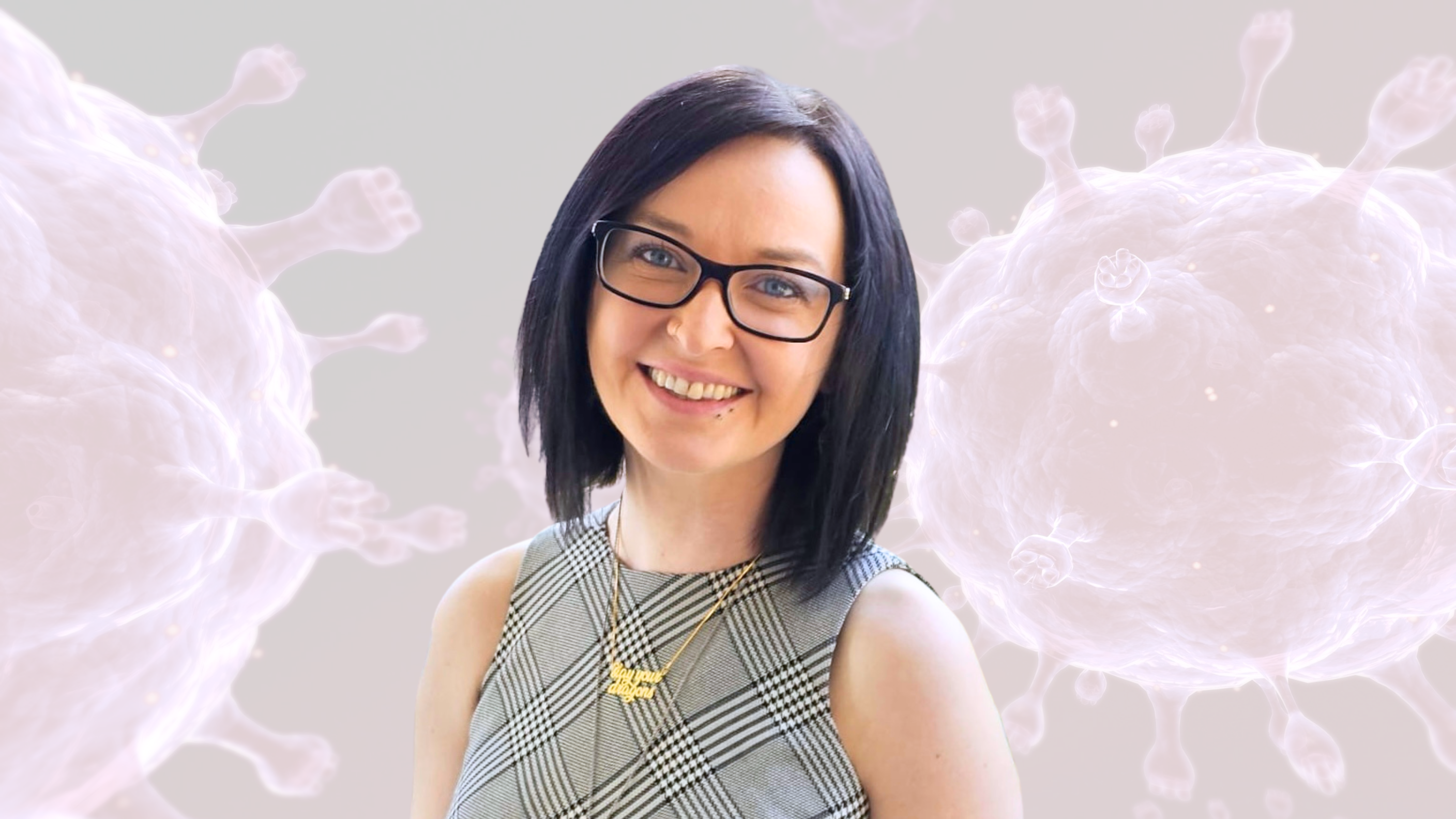
2025
My project is entitled “Proteomic and gene expression alterations facilitate HIV-1 evasion of NK cell recognition using HLA-E in CD4 T cells”. This project focuses on how the HIV-1 accessory protein Nef regulates expression and localization of various Major Histocompatibility (MHC-1) proteins. MHC modulation helps HIV-1 evade immune recognition by preventing successful identification and killing of infected cells. It does this by using viral peptides to mimic self peptides, and modulating which MHC molecules those peptides are presented on. This effectively creates an invisibility cloak for the infected cell to evade recognition by innate immune cells, however the regulation of this process is not fully understood. Characterizing how MHC modulation is facilitated by lab adapted verses primary strain Nef in true primary CD4 T cells will help further our understanding of how the innate immune system controls HIV-1 replication and help inform better immune control strategies.
The HARC center has an incredibly exciting combination of expertise in primary cell culture, gene editing, proteomics, and virology in a way that allows extremely powerful insights into virus-host cell interactions. This project aligns well with the HARC center’s goal of elucidating molecular systems that are essential for or contribute to pathogenesis of HIV/AIDS by directly characterizing the mechanisms by which HIV hijacks certain immune proteins for its benefit. By focusing on primary cell infection models and investigating Nef sequence/function variability from primary virus isolates we are expanding our mechanistic knowledge to situations that are more clinically relevant for people living with HIV. We are not only aiming to understand evasion of NK cell recognition, but also expand our knowledge of how both virus and host cell genotype influence the efficacy of this type of innate immune control of viral infection.
We have previously shown that HLA-E helps HIV-1 evade recognition of infection by a lab adapted HIV strain using gene editing. While this mechanism has been suggested from experiments in cell lines, it was unclear whether this occurs in the context of a true infection model until recently. We now want to expand both (1) our understanding of how MHC protein modulation is regulated in true primary T cells (2) how do these mechanisms differ in a variety of different host cell genetic backgrounds, and (3) how primary virus isolates differ in their immune modulation properties compared to lab adapted strains. My long term goals aim to help elucidate what determines whether or not and how well NK cells control infection in different people, and if this can be co-opted to induce HIV-1 control in people living with HIV in the absence of antiretroviral drugs.
There is still a big debate in the field about what role natural killer cells play in HIV infection. Some patient cohort studies have seen association of particular NK cell genotypes that appear to have a protective effect, but these associations have not held true in all patient cohorts. A major limitation thus far has been that mechanistic studies in cell lines don’t account for variability of genetic background, and teasing apart mechanism from patient cohort studies is often challenging or may not be pheasible. Our data suggests that the genotype of multiple immune proteins in combination may be influencing the magnitude of control facilitated by HLA-E, suggesting epistatic or multi-gene effects determine NK cell control of infection. By furthering our understanding of these genotype to phenotype effects using real primary T cell and NK cells from a variety of genetic backgrounds we will be able to get a level of mechanistic resolution that we previously have not been able to achieve. It is really exciting to me that we can now do extremely mechanistic, cell biology focused experiments to understand the virus-host cell interplay at a resolution which has not been possible until recently.
HIV has proven to be one of the trickiest bugs out there, and despite it being the most studied virus of all time we are still lacking a complete understanding of how the immune system controls infection. If we have learned anything from history it is that we need to stay one step ahead in trying to understand how HIV evolves in order to prevent resistance before it happens, and to take advantage of every biological strategy we have to combat it. The more we know about the biological mechanisms in true primary immune cells, the more tools we will have to prevent HIV infection and pathogenesis.